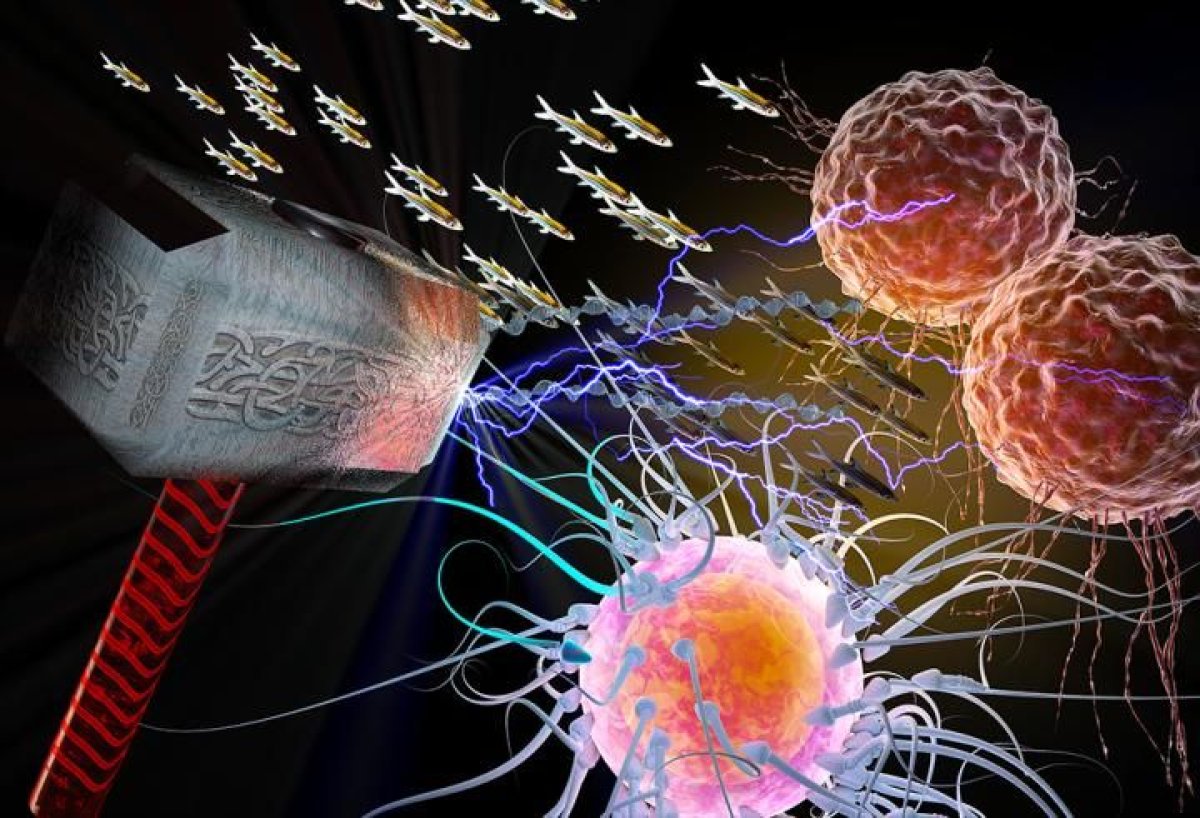Thor—the fictional, powerful man-god who possesses hammer-wielding abilities—may also be able to help fight cancer. Well, not exactly Thor, but THOR—a novel gene discovered and named by researchers from the University of Michigan Comprehensive Cancer Center.
While investigating a previously unexplored area of the genome, researchers stumbled upon a long non-coding RNA (lncRNA). Unlike typical ribonucleic acid, or RNA cell chains, lncRNAs don't translate into proteins. The newly discovered cell chains have been found in a number of species, including humans, mice, and zebrafish, which researchers note is rare for this specific type of RNA. Geneticists refer to this phenomenon as conservation. They are interested in such genes because those that are highly conserved—that is, they've been around for a long time, unchanged through evolution—are probably crucial for life.
"Genes that are evolutionarily conserved are likely important for biological processes. The fact that we found THOR to be a highly conserved IncRNA was exciting," study author Arul Chinnaiyan, director of the Michigan Center for Translational Pathology and a professor of pathology at Michigan Medicine, said in a statement.
Chinnaiyan and his colleagues investigated how THOR—which stands for Testis-associated Highly-conserved Oncogenic long non-coding RNA—is involved in some cancers, particularly lung cancer and melanoma. Their findings revealed that when they silenced THOR in cell lines, tumor growth slowed in zebrafish models. When the team overexpressed THOR cells, the tumors grew faster. Additionally, cells that had THOR eliminated grew normally. Chinnaiyan notes that his team tested many lncRNAs prior to observing this.
"Most of the ones we test don't have a clear function like this," he said in a statement.

It's important to note that the research, published in the journal Cell, was done on human cancer cells and various animal models—both were part of basic laboratory research. More studies need to be conducted confirming the findings before the are applied in patient care settings.
The researchers also explored the relationship between THOR and insulin-like growth factor-binding proteins (IFGBs), which are believed to assist in keeping RNAs stable. "If we perturb THOR function, we disturb the ability to stabilize RNA. This inhibits cell proliferation," Chinnaiyan said.
Previously, scientists believed that IncRNAs were "junk" DNA. But this perspective rapidly changed over the past decade or so, according to a 2015 literature review published in the journal Oncogene. Now, many more researchers—including Chinnaiyan and his colleagues—have dedicated their time to better understanding the role of the genes in cancer.
Despite the many new findings, "the biological function and molecular mechanisms of lncRNA in human diseases in general and cancer in particular remain largely unknown," authors of the review wrote in their published paper.
Uncommon Knowledge
Newsweek is committed to challenging conventional wisdom and finding connections in the search for common ground.
Newsweek is committed to challenging conventional wisdom and finding connections in the search for common ground.
About the writer
To read how Newsweek uses AI as a newsroom tool, Click here.






